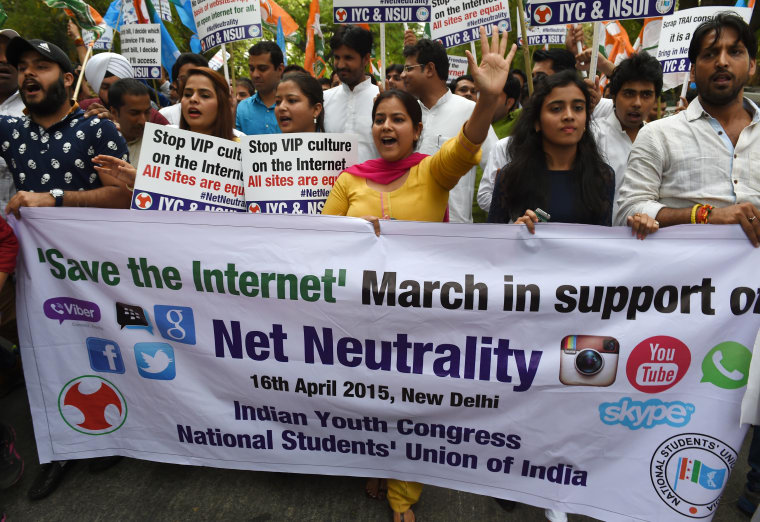Net Neutrality Survives Court Challenge
The FCC’s rules to treat all internet content equally were contested by AT&T, Comcast, and Verizon.
 Money Sharma
/
Getty Images
Money Sharma
/
Getty Images
Net neutrality is a set of guidelines put into place by the Federal Communications Commission (FCC) in 2015, stating that all internet service providers must not restrict or block any internet content to their users. Today, a federal appeals court ruled that the internet should be treated as a public utility instead of a luxury, allowing "for more rigorous policing of broadband providers and greater protections for web users," The New York Times reported.
The FCC's rules, established by the Obama administration, were supported by Google and Netflix, and contested by AT&T, Comcast, and Verizon, Bloomberg reported. These companies argued that the rules would hurt their profits, but the court ruled that internet service providers are meant to “act as neutral, indiscriminate platforms for transmission of speech of any and all users.”
David McAtee II, senior executive vice president and general counsel for AT&T, said that the company would appeal the ruling in the Supreme Court.